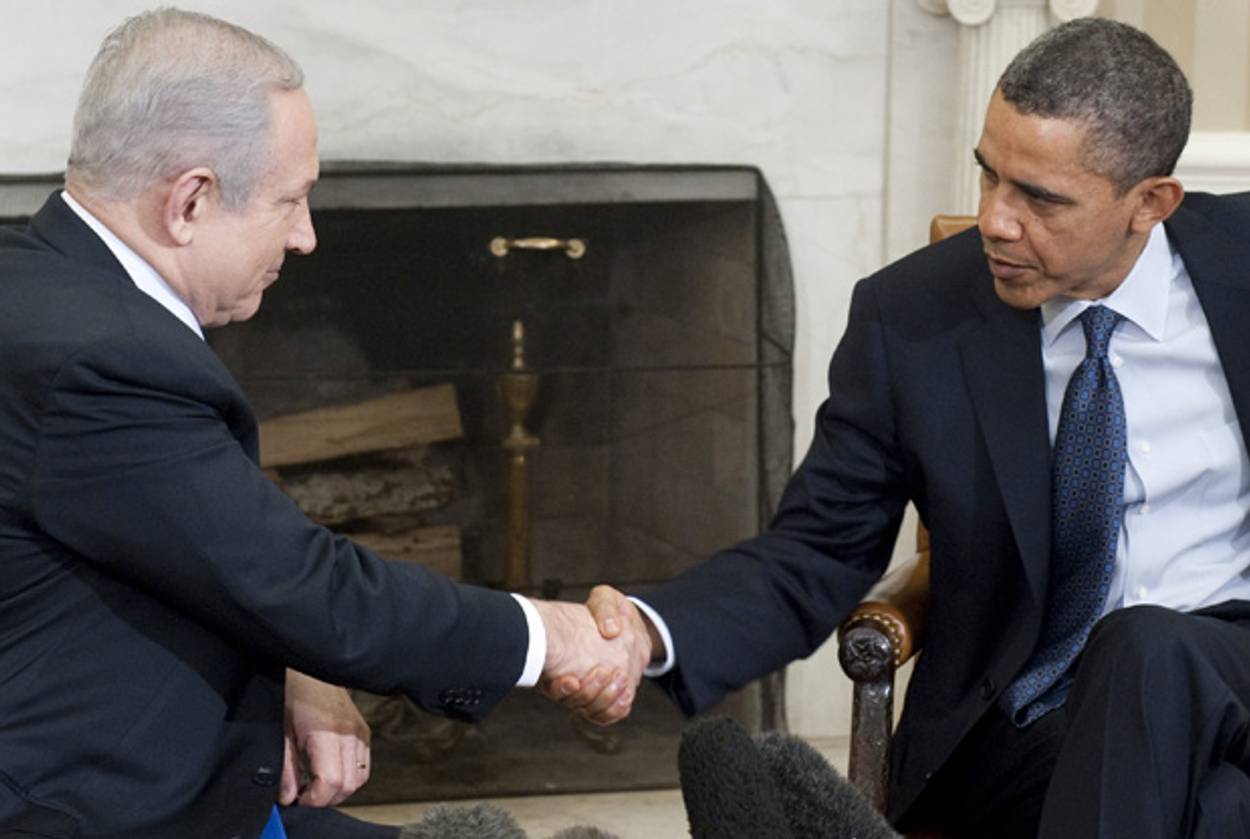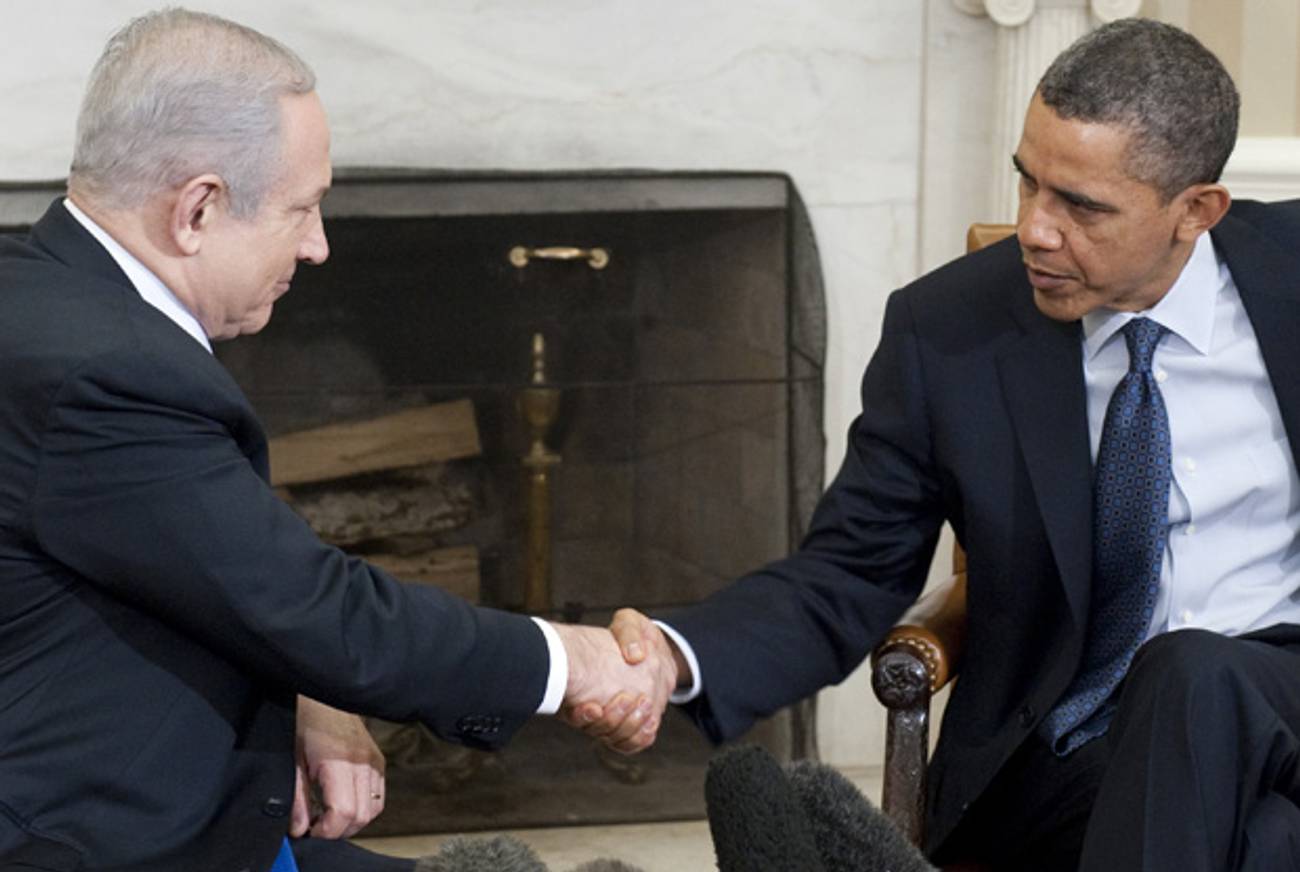An Israeli Attack on Iran: Will It or Won’t It?
Weighing the evidence at the end of AIPAC week




“It’s not a matter of days or weeks, but also not of years,” Prime Minister Netanyahu, back in Israel, said. So, months then? Say, six months? In truth, after the past week’s events, we still don’t know if Israel is going to attack Iran’s nuclear facilities or not. Let’s try to divide the evidence of whether Israel will or won’t attack Iran by, say, September.
It Will:
• New spy satellite images show what is likely clean-up of radioactive material at the Parchin facility, to which inspectors have not been granted access. This suggests Iran’s program is indeed not peaceful, as the head of the U.N. inspectors argued: “We have the indication or information,” he said yesterday, “that Iran has engaged in activities relevant to the development of nuclear explosive devices.” [AP/Haaretz]
• Israeli officials for the most part aren’t buying the latest Iranian feints toward diplomacy. [NYT]
• The United Nations found that Iran has only increased domestic repression and “fundamental human rights abuses.” This doesn’t actually auger in favor of an attack, but should be a reminder of who the bad guys are. [WSJ]
• More than ever, there are signs that Hamas has reoriented itself away from its former host regime in Syria and from that regime’s close ally, Iran. Which isn’t to suggest the group, which controls Gaza, would feel like things were hunky-dory the day after an Israeli attack on Iran, but it could reduce significantly how many rockets Sderot would face. So the costs are arguably lowered. [WP]
???
• In exchange for new diplomatic engagement, the West is demanding access to Parchin. How Iran responds could have a big impact on this question. [NYT]
• Eli Lake takes a valuable look at the eight members of Israel’s security cabinet who would consult on an attack. While Netanyahu is certainly the most important single decision-maker, he isn’t the only one. [The Daily Beast]
• The U.S. Congress is about to sanction every single Iranian bank. It’s a sign that there are means short of war to pressuring Iran. But it’s also a sign that the U.S. Congress has absolutely no mercy for Iran right now. [FP The Cable]
• As long as we’re talking about Iran, we’re not talking about the Palestinians. One could argue that this means it is in Netanyahu’s interest to keep the threat of an Israeli attack in the news while never following through on it. On the other hand, we’re not going to keep talking about Iran at this pace over the next six months anyway, and it’s not like this is a total wag the dog situation in the first place. [NYT]
It Won’t
• The Israeli public supports Netanyahu’s Likud Party. Netanyahu, who recently secured his party leadership position, is rumored to be mulling snap elections—he wants to be re-elected before President Obama is. The Israeli public also opposes a unilateral Israeli strike. Do the math. [Haaretz]
• Marc Ambinder reports that the Obama administration’s increased push for sanctions and use of covert activities to disrupt Iran’s program and collect intelligence has helped convince Israel both that the U.S. truly does take the threat seriously and can do much short of an actual strike to hamper Iran. [GQ]
• Defense Secretary Leon Panetta reminded Israel that a U.S. strike would do far greater damage and be far more consequential than an Israeli one. “If they decided to do it there’s no question that it would have an impact,” he said, “but I think it’s also clear that if the United States did it we would have a hell of a bigger impact.” This is both a sign that the administration continues to press Israel not to strike and an actual argument for Israel not striking. [Wired Danger Room]
• And the U.S. isn’t selling them the weapons that would help change the dynamic Panetta describes (and even if it did, the dynamic would remain). [Haaretz]
• Former Mossad head Meir Dagan is making his most prominent anti-attack statement yet with an appearance on 60 Minutes this Sunday. It’s no secret that this is Dagan’s position, and Dagan has no actual power anymore, but it’s likely a good indication of where Israeli intelligence stands on the wisdom of a strike. [Haaretz]
If I were a betting man, I’d bet on “It Won’t.” But instead, I’ll report and let you decide.
Marc Tracy is a staff writer at The New Republic, and was previously a staff writer at Tablet. He tweets @marcatracy.